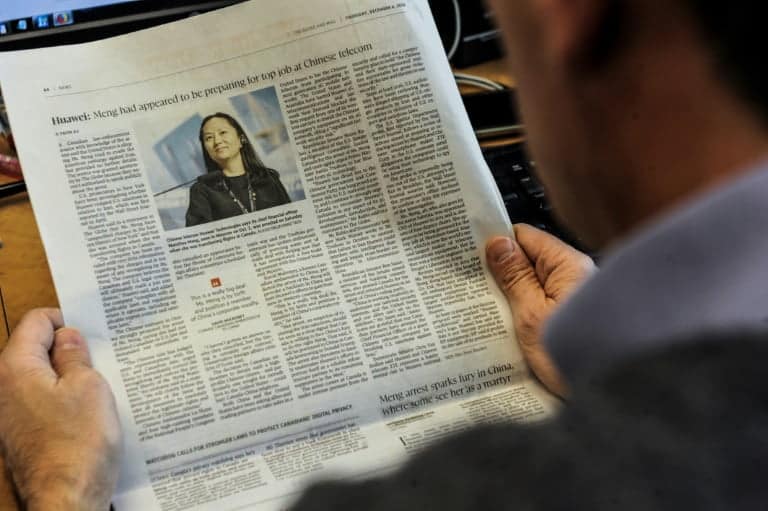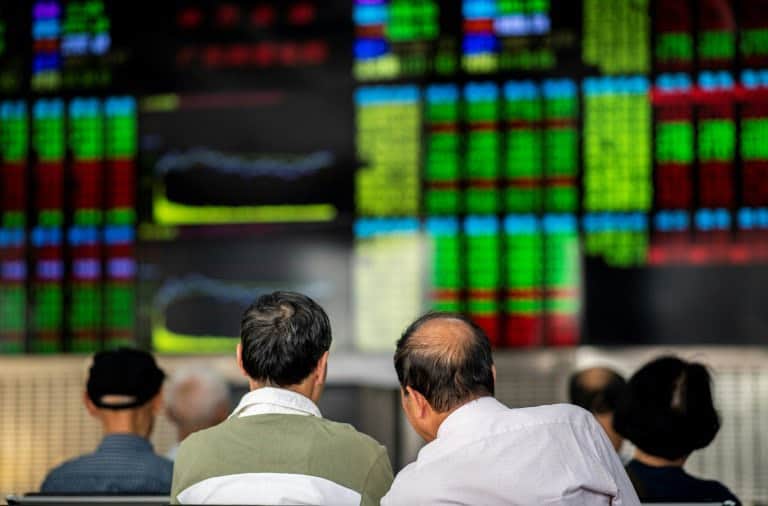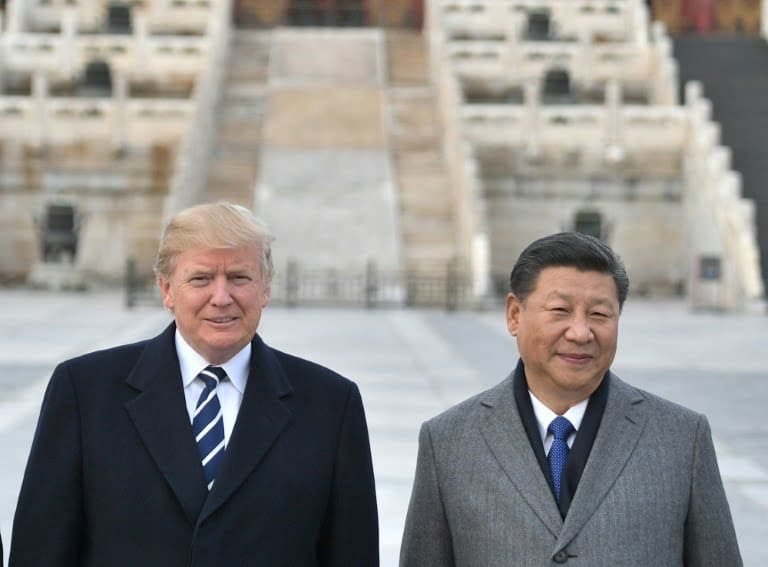Business
The arrest of a Huawei leader shakes the global stock markets

From Hong Kong to New York, the world stock exchanges, already in small form, were alarmed Thursday the arrest of an official of the Chinese group Huawei at the request of Washington, a court decision may question the recent trade break sino -américaine.
Wall Street’s leading index, the Dow Jones Industrial Average, was up 1.93% at around 1820 GMT. The Nasdaq dropped 0.81% and the S & P 500 1.69%.
The European markets all closed in the red. In Paris, the ACC fell by 3.32%, the Frankfurt Stock Exchange by 3.48% and the London Stock Exchange by 3.15%. Among the other financial centers, the Milan Stock Exchange dropped 3.54% and the Madrid Stock Exchange 2.75%.
Before the European indices, the Asian stock markets had also flinched after the announcement of the arrest. In Tokyo, the leading Nikkei index fell by 1.91%.
Chinese markets posted particularly sharp declines: in Hong Kong, the Hang Seng Composite Index fell 2.47%, the Shanghai Stock Exchange lost 1.68% and the Shenzhen Stock Exchange 2.17%.

From Hong Kong to New York, world stock exchanges, already in small form, were alarmed Thursday the arrest of an official of the Chinese group Huawei at the request of Washington
This strong downturn “is mainly related to the arrest of the financial director of the Chinese group Huawei, which compromises the hopes of easing trade tensions between China and the United States,” told Nigeria News Daniel Larrouturou, Deputy Chief Executive Officer at Diamant Bleu Gestion.
Meng Wanzhou was arrested on December 1 in Vancouver, Canada. The United States is seeking his extradition and a bail hearing is scheduled for Friday, according to the Canadian Department of Justice.
– Reprisal measures? –
According to press reports, Washington suspects Ms. Meng of violating US sanctions against Iran. But this arrest comes just days after the announcement of a truce in the Sino-US trade war, which is already weighing on global growth.

Presidents Donald Trump and Xi Jinping in Beijing November 8, 2017
Acted after a meeting between Presidents Donald Trump and Xi Jinping, this ceasefire of 90 days should allow the first two world powers to renegotiate their trade relations.China pledged Thursday that it will implement “immediately” measures agreed with the United States during the meeting between the two presidents, without reassuring market players.
“All sectors are in the red and no compartment can get out of the water,” said Andrea Tuéni. In Paris, the technology sector finished at the back of the pack. STMicroelectronics fell by 5.98% to 12.11 euros and Soitec from 5.88% to 48.94 euros.
Auto stocks suffered particularly hard in Frankfurt, BMW yielding 2.82% to 72.07 euros and Volkswagen 3.12% to 143.00 euros while the London Stock Exchange, the mining sector was heavily penalized, Anglo American falling by 4.22% to 1,556.40 pence and Antofagasta from 7.07% to 760.00 pence.
– Fears about economic growth –
The arrest in Canada of Meng Wanzhou, which seems to compromise the truce in the Sino-US trade war announced this weekend, does not alone explain such a debacle of the stock market, estimated with Nigeria News Andrea Tuéni, an analyst at Saxo Bank.
“It’s a set of events (that play) .There is of course this business case on which there is not much investor optimism, but there are also fears about the growth and the situation economy, “said Tuéni.
Finally, on the front of the currencies, the euro rose a little against the dollar: around 18:00 GMT, the single currency was worth 1,1387 dollar, against 1,1344 dollar Wednesday at 22:00 GMT.

Before the European indices, the Asian stock markets had also flinched after the announcement of this arrest.
For their part, oil prices fell in a market undermined by its own concerns. Investors questioned in particular about the possible scale of production cuts that would be granted by OPEC.
Around 18:20 GMT, the barrel of Brent lost $ 1.94 to $ 59.62 in London and, in New York, a barrel of WTI dropped $ 1.80 to $ 51.09.
